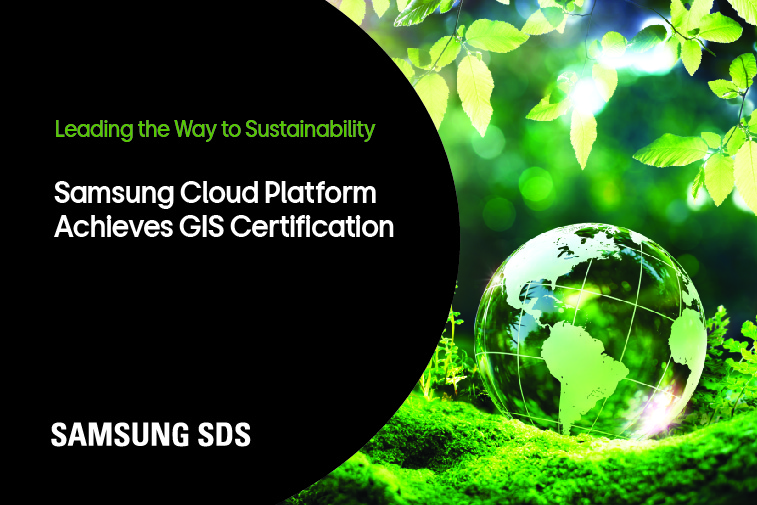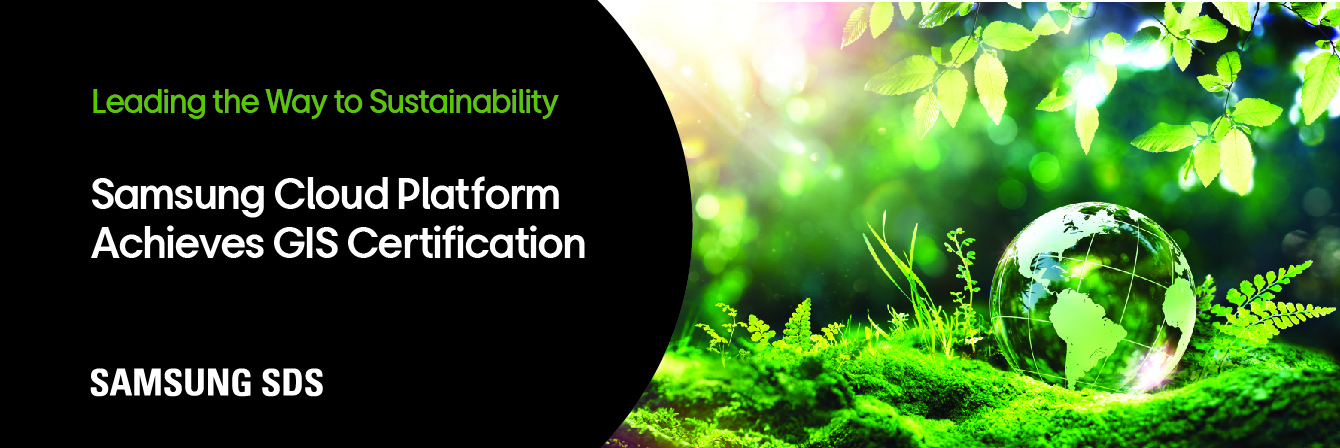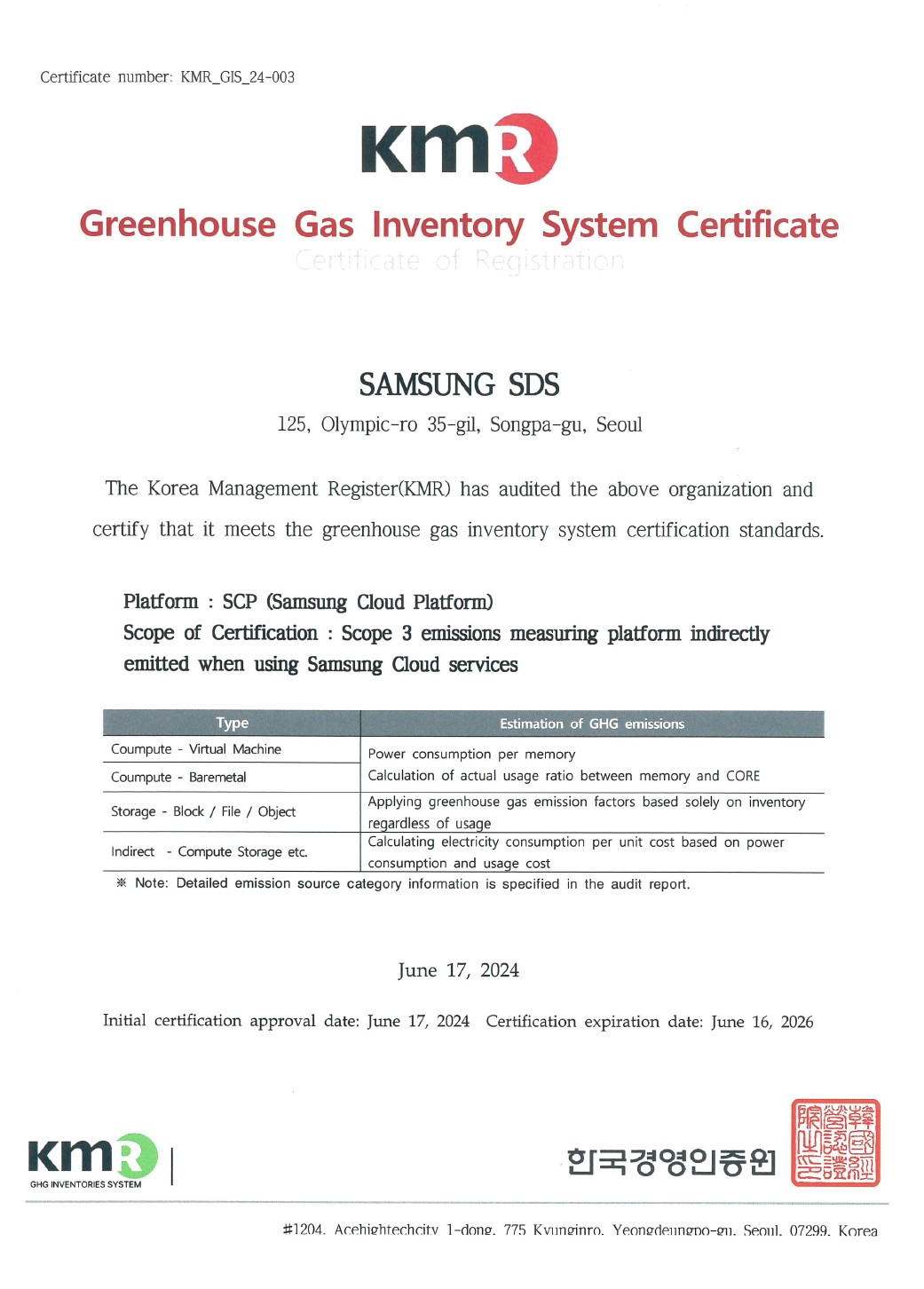SCP Obtains Greenhouse Gas Inventory System Certificate, a First Among Korean Cloud Service Providers


SCP(Samsung Cloud Platform) succeeded in gaining the Greenhouse Gas Inventory System (GIS) Certificate from Korea Management Registrar (KMR), the first among Korean Cloud Service Providers.
First GIS Certificate Obtained by a Korean CSP
What is the Greenhouse Gas Inventory System Certificate?
Also called the GIS Certificate, the Greenhouse Gas Inventory System Certificate is a certification process that guarantees the reliability and accuracy of systems that companies utilize to accurately measure, manage, and report their greenhouse gas emissions. By establishing such a management system, companies can set their emission reduction strategies or join the carbon market in line with the global trend for carbon neutrality. The GIS Certificate validates the adequacy of carbon emission calculation systems. It was established based on domestic and overseas laws and institutions, as well as International Organization for Standardization (ISO) standards.
Starting in 2025, the Korean government will make it mandatory for listed companies to disclose their environmental, social, and governance (ESG) information.

In 2023, the Cloud Service Business Division established its own method for calculating SCP’s carbon emissions, enabling customers to use the dashboard to check Scope 3 carbon emissions that are indirectly generated by their use of SCP. In June this year, SCP’s calculation method for greenhouse gas emissions was recognized as compliant by the accredited certification agency.
Scope 1: Greenhouse gases emitted from sources directly owned and controlled by companies, such as the use of raw materials, fuel consumptions, and industrial process
Scope 2: Greenhouse gases generated due to use of energy (e.g., power, heat, etc.) consumed by companies
Scope 3: Indirectly generated greenhouse gases due to services, products, and recycling used by companies
Real-Time Carbon Emission Monitoring Using SCP
The amount of greenhouse gases generated while using the SCP is automatically calculated, and users can check carbon emission by product or monthly emission trend through the dashboard. In particular, the SCP console’s widget allows users to monitor carbon emissions of the month, expected emissions at the end of the month, emission increase or decrease compared to the previous month, emissions by product category, and monthly average emissions. Additionally, a decrease in carbon emission resulting from using the cloud compared to an on-premises type can be simulated using the Pricing Calculator. The information is also available through the OpenAPI, which can be utilized for various ESG activities, including the disclosure of customers’ carbon emissions.
SCP will continue to pay close attention to the global environment and will evolve further to contribute to customers’ ESG management activities.